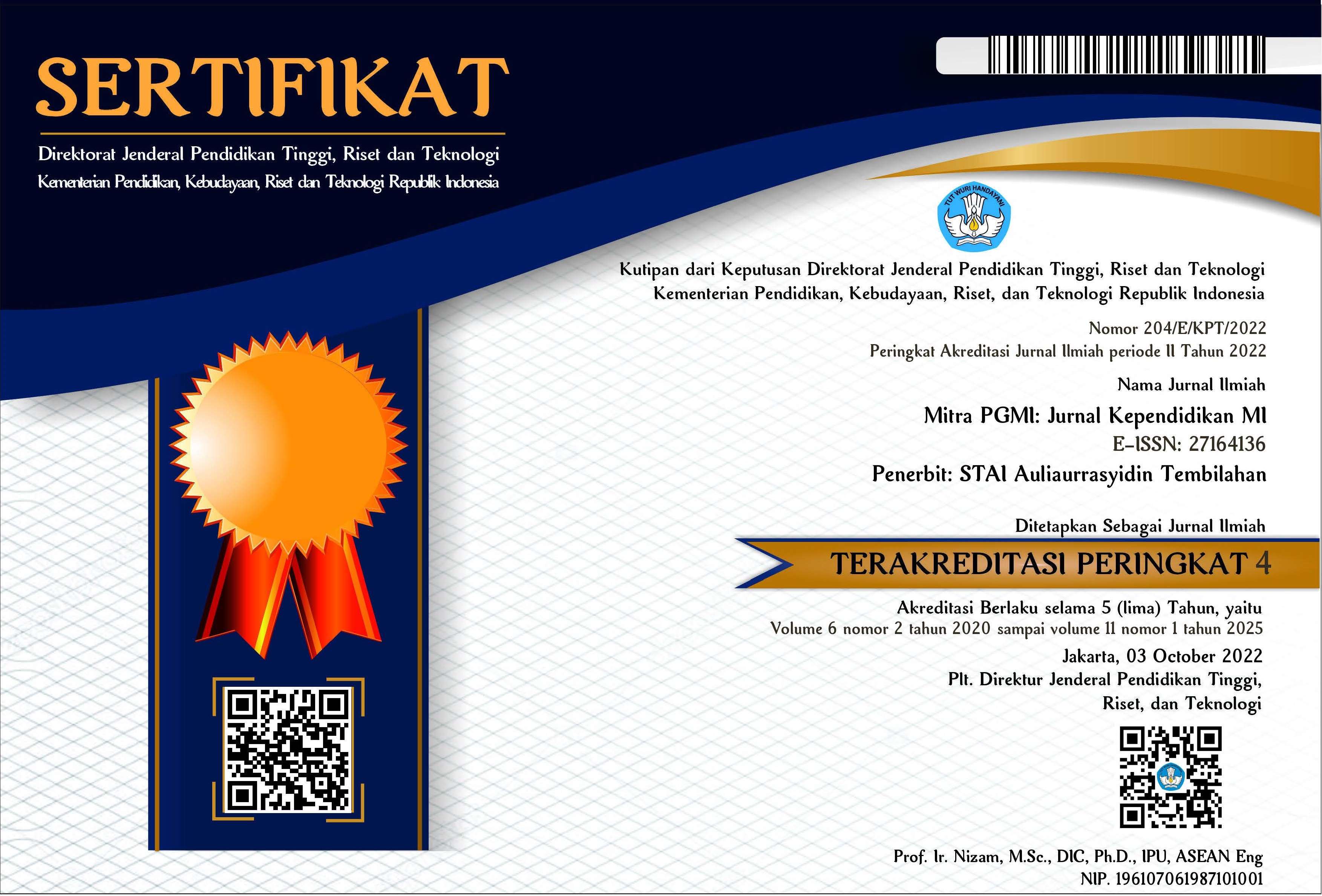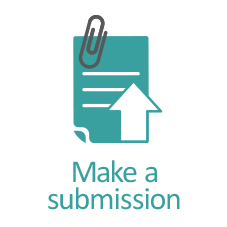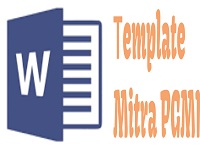The application of anates in assessing the success of learning idgham and iqlab material in madrasah ibtidaiyah
DOI:
https://doi.org/10.46963/mpgmi.v11i1.2410Keywords:
Anates, Idgham, Iqlab, Learning, EvaluationAbstract
This research aims to evaluate the success of learning Idgham and Iqlab material at Madrasah Ibtidaiyah (MI) using the Anates application as an assessment tool. Mastery of Tajwid law, especially Idgham and Iqlab, is an important aspect in studying the Koran. The research subjects consisted of 21 grade 4 students at MI Ma'arif Sambiroto Taman Sidoarjo. The method used includes testing 15 questions, consisting of 10 multiple choice questions and 5 essay questions, which are tested without preparation. The results of the analysis show that the majority of students have understood the material well, although there are still students who have not reached the minimum completeness criteria (KKM). The validity and reliability of the questions tested showed positive results, so that the Anates application proved effective in assessing student understanding. This research concludes that the application of Anates can help teachers measure learning success and provide a basis for further intervention in the learning process.
Downloads
References
Ahmad Zaki, D. Y. (2020). Penggunaan Media Pembelajaran untuk Meningkatkan Prestasi Belajar Siswa pada Pelajaran PKN SMA Swasta Darussa’adah Kec. Pangkalan Susu. Al-Ikhtibar: Jurnal Ilmu Pendidikan, 7(2), 809–820. https://doi.org/10.32505/ikhtibar.v7i2.618
Aris Sugianto. (2016). Ciri-Ciri Karakteristik Tes yang Baik. Retrieved from https://www.researchgate.net/publication/306057639
Artama, S., Djollong, A. F., Ismail, Lubis, L. H., Kalbi, Yulianti, R., … Diana, P. Z. (2023). Evaluasi hasil belajar.
Asrul, Sarigih, A. H., & Mukhtar. (2022). Evaluasi Pembelajaran. In Perdana Publishing. Retrieved from http://repo.iain-tulungagung.ac.id/5510/5/BAB 2.pdf
Elviana. (2020). Analisis Butir Soal Evaluasi Pembelajaran Pendidikan Agama Islam Menggunakan Program Anates. Jurnal MUDARRISUNA, 10(2), 58–74. Retrieved from https://jurnal.ar-raniry.ac.id/index.php/mudarrisuna/article/view/7839
Eprillison, V., Gumanti, D., & Padang, U. E. (2022). Penerapan aplikasi anates dalam menganalisis butir soal pada guru mata pelajaran ekonomi sma yapi padang. Community Service Journal of Economics Education, 1(2), 26–31.
Faza Alifah, D. (2025). Analisis butir soal melalui aplikasi anates oleh siswa smk. 2(2), 235–242.
Febriana, D. R. (2021). Evaluasi Pembelajaran (1st ed.; Bunga Sari Fatmawati, ed.). Jakarta. Retrieved from https://books.google.co.id/books?id=moM_EAAAQBAJ&lpg=PR4&hl=id&pg=PR4#v=onepage&q&f=false
Nazliati. (2018). Penggunaan software anates dalam pembelajaran evaluasi pendidikan pada mahasiswa non matematika FTKIN iain langsa. Al-Khawarizmi: Jurnal Pendidikan Dan Pembelajaran Matematika, 2(2).
Nazliati, N. (2019). Penggunaan Software Anates Dalam Pembelajaran Evaluasi Pendidikan Pada Mahasiswa Non Matematika Ftik Iain Langsa. Al Khawarizmi: Jurnal Pendidikan Dan Pembelajaran Matematika, 2(2), 139. https://doi.org/10.22373/jppm.v2i2.4503
ristekdikti. (n.d.). Panduan Latihan Pembuatan Rubrik. 1–6.
Safri, S., Hapzi Ali, & Kemas Imron Rosadi. (2022). Literatur Review Keberhasilan Pendidikan: Berfikir Sistem, Potensi Eksternal Dan Kurikulum. Jurnal Ekonomi Manajemen Sistem Informasi, 3(5), 497–504. https://doi.org/10.31933/jemsi.v3i5.985
Wahyuningsih, W. (2020). Alat Evaluasi sebagai Indikator Keberhasilan Pembelajaran. Prosiding Nasional Pendidikan: LPPM IKIP PGRI Bojonegoro, 1(1), 361–367. Retrieved from https://prosiding.ikippgribojonegoro.ac.id/index.php/Prosiding/article/view/1120
Wiguna, S. (2021). Aplikasi Anates dalam Evaluasi Pembelajaran.
Wiguna, S. (2024). Analisis Pengunaan Aplikasi Anates Terhadap Pengembangan Soal Assemen Formatif Siswa Di MAN 1 Langkat. 4(3), 571–581.
Downloads
Published
Issue
Section
License
Copyright (c) 2025 Adilah Mazaya Nabilah, Mira Devi Santika, Nadlir Nadir

This work is licensed under a Creative Commons Attribution-ShareAlike 4.0 International License.
Authors who publish with this journal agree to the following terms:
1. Copyright on any article is retained by the author(s).
2. The author grants the journal, right of first publication with the work simultaneously licensed under a Creative Commons Attribution shareAlike 4.0 International License that allows others to share the work with an acknowledgment of the work’s authorship and initial publication in this journal.
3. Authors are able to enter into separate, additional contractual arrangements for the non-exclusive distribution of the journal’s published version of the work (e.g., post it to an institutional repository or publish it in a book), with an acknowledgment of its initial publication in this journal.
4. Authors are permitted and encouraged to post their work online (e.g., in institutional repositories or on their website) prior to and during the submission process, as it can lead to productive exchanges, as well as earlier and greater citation of published work.
5. The article and any associated published material is distributed under the Creative Commons Attribution-ShareAlike 4.0 International License








2.png)


